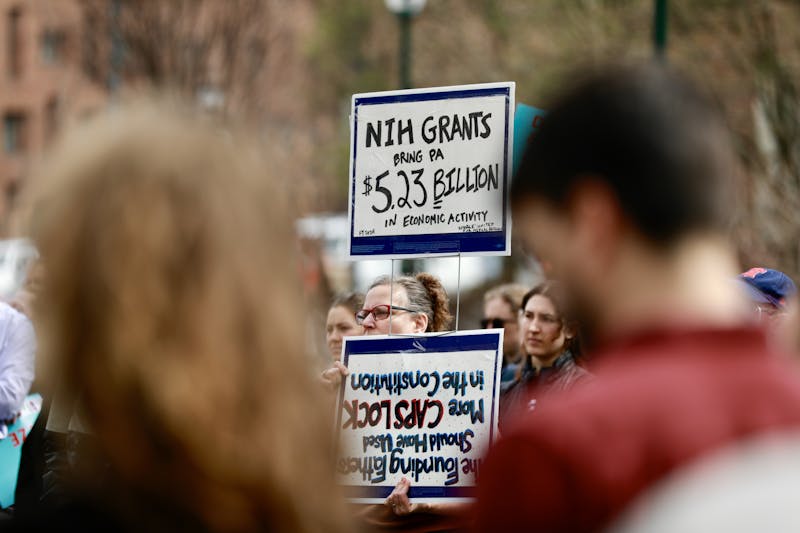The University's three ethnic studies programs -- Afro-American, Asian-American and Latin-American studies -- engaged in their first joint panel discussion last week in Houston Hall. The event followed a series of town meetings throughout the year where Asian-American, Latino and black groups gathered to discuss issues in light of University President Judith Rodin's minority recruitment and retention plan, which was released in September 1996. Last Wednesday's forum, "Rethinking America: The Importance of Ethnic Studies," had two purposes: to bring the groups together and to make students and faculty members more aware of ethnic studies programs. "I saw a need for unity among different minority groups," said College junior Andrea Cherng, chairperson of the Asian-American Studies Undergraduate Advisory Board. "I wanted to provide an opportunity for the three groups to work together, but in an academic setting which is less politically volatile." Five student leaders served on a committee planning the event, during which six panelists --Ea professor and an alumnus from each program -- talked about the importance of each program. Since all three programs came into existence as a result of student lobbying, panelists stressed the importance of student action. "You have much more power than you think," Romance Languages Professor Jorge Salessi, a panelist for Latin American Studies, said to the the students at the forum. From their origins to the way each program analyzes "how race, class and gender would systematically privilege one group over another," all ethnic studies programs share many similarities, according to Asian-American Studies Professor Mark Chiang. All ethnic studies programs share the pressure to prove themselves "to be a legitimate intellectual endeavor," said English Professor Farah Griffin, a representative of the Afro-American Studies program. She stressed the tendency in higher education to "ghettoize" ethnic studies and assume that such programs are only applicable to minority groups, preventing the programs from being incorporated into mainstream courses of study. The most frequently asked question is "How will ethnic studies degree be useful in the real world?" Griffin said. Afro-American Studies -- or any other ethnic studies program -- teaches students to think and write critically, and is also crucial to understanding America as a diverse and multicultural society, she said. Griffin also cited the many medical and technological advances made as a result of violence and forced experimentation on the black community. "Any understanding of the United States that ignores the contribution of black people is false," Griffin said. The first Penn student to earn a degree in Latin-American Studies, 1997 College graduate Freddy Godoy, said that before entering the Latin-American Studies program, what he "knew culturally was not supplemented by an intellectual framework." And 1996 College graduate Malavika Rao, one of the first students to lobby for the Asian-American Studies Program, said that when she began taking the few Asian-American Studies courses offered at the time, she realized that Asian-Americans had lived as "house guests to the country." Asian-American contributions to the United States were "never a part of my education before I came to Penn, and unless things changed, it seemed like it would never be a part of anyone's education," she said. But 1971 College graduate Cathy Barlow, who founded DuBois College House, said ethnic studies have come far, as evidenced by the forum itself. "It's good to see that each program feel strong and well-established enough to be willing to collaborate with other programs," she said. Barlow is no stranger to minority activism at Penn. In 1968, she led black students in an open sit-in at College Hall to protest Penn's treatment of its growing number of black students. The sit-in resulted in a dialogue with the administration which led to the creation of the house and the Afro-American Studies Program. "I think there's a certain amount of fear among people who are just beginning to come into power, fear of sharing some of that power," she said. "But when you do, it becomes an important tool for accomplishing change."
The Daily Pennsylvanian is an independent, student-run newspaper. Please consider making a donation to support the coverage that shapes the University. Your generosity ensures a future of strong journalism at Penn.
DonatePlease note All comments are eligible for publication in The Daily Pennsylvanian.







